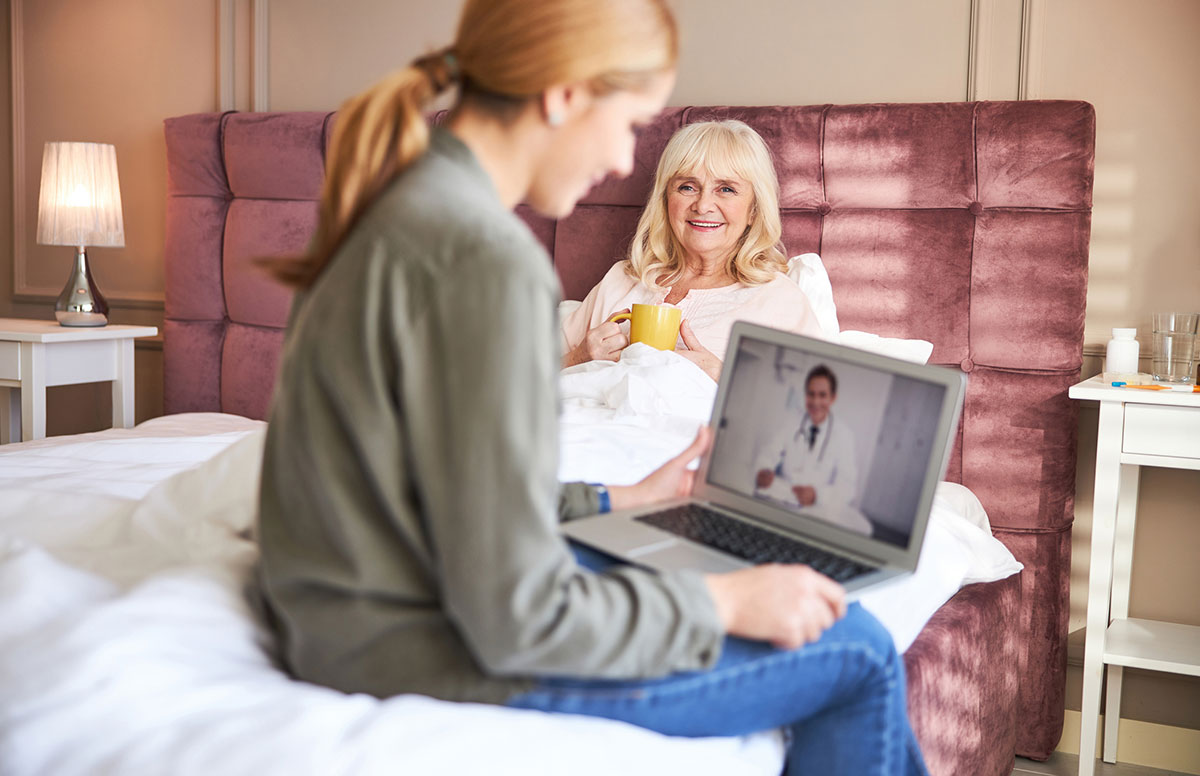Helping Each Other Heal from the COVID Trauma
People who have lived through a traumatic experience often seek out support groups where they can connect with others who’ve gone through the same ordeal. They look to their peers for assurances that they are not alone, and to find tools to help them recover.
Facing our trauma—and talking about our pain—is never easy. But when we do it together, as LeadingAge members did last week during the first days of our Annual Meeting Virtual Experience, it can be incredibly moving—and healing.
Coming together with members after all these months had a powerful effect on me. Like many of you, I had tears in my eyes as I listened to LeadingAge Board Chair Carol Silver Elliott so poignantly describe the trauma we’ve all experienced during 2020. It was such a relief to acknowledge our shared sadness, brokenness, and weariness.
I sensed a profound unity among us. It became clear that, despite our physical distance over the past 9 months, we’ve been united in our fear and frustration, as we tried to understand the coronavirus and keep residents and team members safe. Some of us faced our own personal struggles with the virus. All of us still grieve for the many residents and clients who lost their lives to COVID-19.
I also felt a sense of triumph. Yes, we went through hell—we are still going through hell as the virus surges around the country. But we showed up every day, we did our jobs, we fought the good fight for older adults—whether we carried out our work in nursing homes, assisted living communities, congregate housing settings, community-based agencies, state capitols, or the halls of Congress. We did good work that mattered. And the world is better for it.
Finally, I felt a strong sense of resolve after listening to keynote speaker Brené Brown, a nationally recognized researcher and writer who studies leadership, courage, and vulnerability. Brené reminded us that it’s okay to feel weary, wobbly, and uncertain. She urged us to embrace and own those feelings. But she also challenged us to keep the faith, keep trying, and keep practicing courageous leadership.
We’ve all been courageous in so many ways over the past few months, as we made hard decisions, fought for needed resources, and led our organizations through dark days. But Brené called on us to have a very specific kind of courage—the courage to face our own frailties and to acknowledge the frailties of our team; the courage to offer and take advantage of opportunities for healing.
Being a courageous leader means inviting team members to tell us that they’re sad, depressed, stressed, burned out, or dealing with challenging life issues. It means admitting our own vulnerabilities. It means taking care of ourselves and helping our teams do the same.
Brené’s advice was simple and practical. Practice asking each team member a simple question each day: “How are you feeling right now?”
It’s a risky conversation starter, make no mistake about it. We might open the door to issues we don’t know how to resolve. We might have to admit that our team members aren’t “okay.” We might have to take steps to help those individuals. But these conversations, just like the conversations we had during the Annual Meeting’s first week, represent the only way to bring about real healing. And we all need to heal from what we’ve experienced during 2020.
During the remaining months of the pandemic, and beyond, we all must takes steps to ensure that our organizational cultures allow team members to find meaningful support during challenging times. It takes courage to shed a bright light on what Brené calls our “collective vulnerability.” It takes courage to acknowledge, as she urges us to do, that none of us will be okay until we’re all okay.
That’s what courageous leadership is all about. And, as Brené told us in no uncertain terms, courageous leadership is our job right now.

Most Recommended
October 15, 2025
 Shutdown Week Three: Impact of Ongoing Closure on Affordable Housing
Shutdown Week Three: Impact of Ongoing Closure on Affordable Housing
January 27, 2026
Fiscal Year (FY) Funding 2026
October 07, 2025
Immigrant Workforce Matching Program Brings Workforce Relief
Recently Added
January 27, 2026
CBO: Pandemic's Impact on U.S. Household Income Inequality
January 27, 2026



